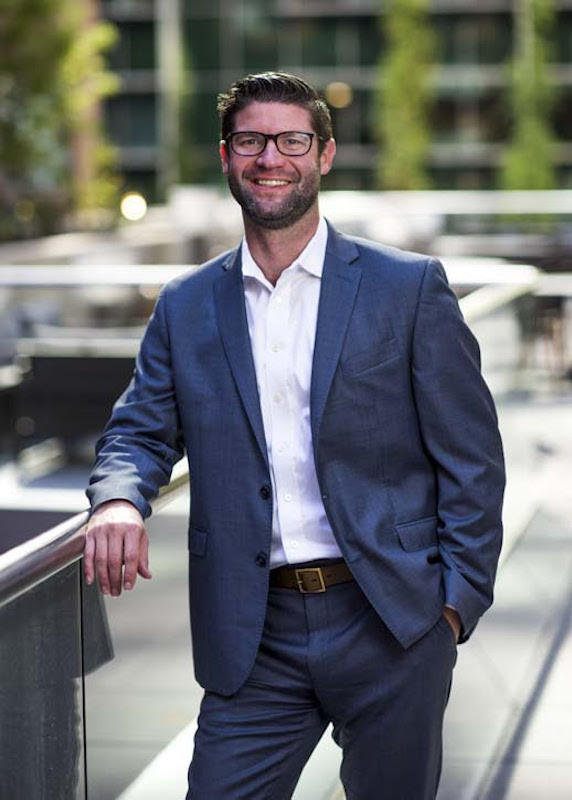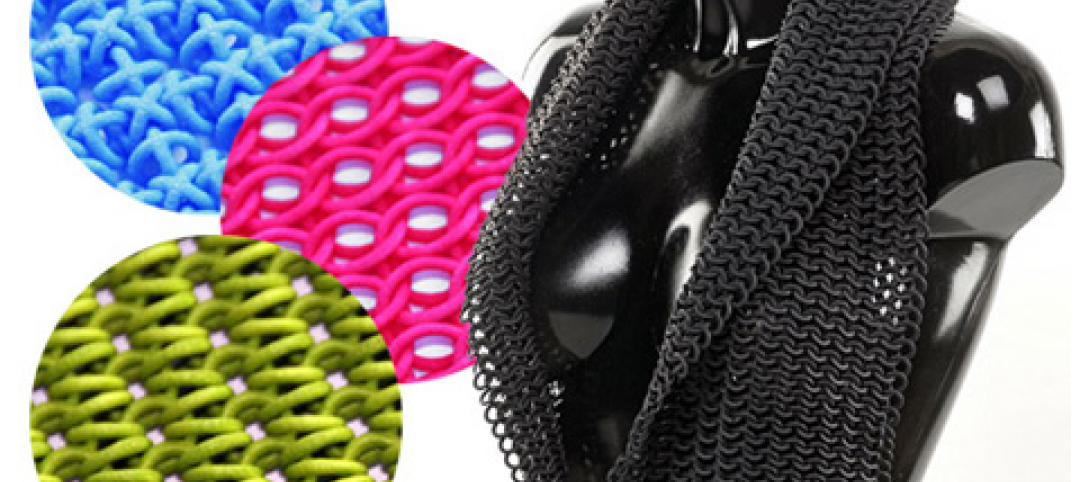Over the past eight years, the general contractor Swinerton went through an up and down growth trajectory that was limited by where it operated and the products it focused on.
In 2018, the company—which dates back to 1888—came out with its March to 2030, a blueprint for future growth that emphasizes product and geographic diversity. Since that plan came to light, the firm has expanded into Texas, Atlanta, Charlotte, and Raleigh. And now, it is making its boldest move by opening its first office in New York City, which Swinerton envisions becoming its hub for the Northeast.
That’s a tall order, given that the company had virtually no presence in that part of the country outside of some work in New Jersey by its renewable energy group. But the COVID-19 pandemic created what Swinerton’s CEO Eric Foster calls “an opportunity in crisis.”
“We feel the need to answer the call to build back better and stronger in post-pandemic New York,” says David Callis, Swinerton’s president and COO.
Running the New York office is Andrew Pearl, a 14-year company veteran who grew up in northern New Jersey but had spent his entire career, until now, with Swinerton in San Diego and San Francisco. “I never intended to stay in California,” Pearl tells BD+C, and he’s been pushing the company to open a branch in New York practically since he joined the firm.
After the coronavirus hit, Swinerton’s executives approached Pearl in the spring of 2020 about accelerating the company’s growth plans for the Northeast. Swinerton officially opens its New York office today at 292 Madison Avenue with 10 fulltime employees.
HOMING IN ON EXISTING ACCOUNTS

Andrew Pearl, Swinerton's New York division manager, has been urging his firm to expand into New York City for more than a decade. Image: Swinerton.
Pearl, whose title is Vice President and Division Manager, says that for the next 12 to 18 months, the New York office’s strategy is to serve the firm’s 75-plus accounts with which it has master agreements. These include technology companies, big banks, and insurance companies. Indeed, the first job the New York office booked is a “small” project for one of its tech clients.
“Many of these clients have been asking us to expand east to do work for them, and now we can finally say ‘yes,’” says Pearl. He adds that the types of projects Swinerton’s New York office is focusing on initially are corporate interiors, aviation, and healthcare/life sciences.
LEVERAGING DIFFERENTIATORS
The New York metro area is the largest and one of the most competitive commercial construction markets in the U.S. Prior to the pandemic, the value of commercial and multifamily starts in the area stood at $30.9 billion in 2019, according to Dodge Data & Analytics estimates.
To get the word out about its new office, Swinerton has hired a local P.R. agency, Cathy Callegari Public Relations, whose client list includes several other construction and engineering firms. Pearl is also in the process of joining a nonprofit that specializes in community building and neighborhood revitalization, and that Swinerton is part of in nine other cities.
And while Swinerton is the new kid on the block in New York, Pearl believes that this $5 billion company, with 20 offices in nine states, can leverage several “differentiators” when pitching new and existing customers. For example, earlier this year Swinerton launched its Timberlab brand for mass timber delivery and integration. Its renewable energy group is active in 28 states. It has a real estate redevelopment business, and a design-build collaboration called Perq with the engineering firm Walker Consultants.
Pearl says the company also has operations in Philadelphia and northern Virginia that now fall under the New York office umbrella.
Related Stories
| Nov 9, 2010
12 incredible objects being made with 3D printers today
BD+C has reported on how 3D printers are attracting the attention of AEC firms. Now you can see how other creative types are utilizing this fascinating printing technology. Among the printed items: King Tut’s remains, designer shoes, and the world’s smallest Rubik’s Cube.
| Nov 9, 2010
U.S. Army steps up requirements for greening building
Cool roofs, solar water heating, and advanced metering are among energy-efficiency elements that will have to be used in new permanent Army buildings in the U.S. and abroad starting in FY 2013. Designs for new construction and major renovations will incorporate sustainable design and development principles contained in ASHRAE 189.1.
| Nov 9, 2010
Designing a library? Don’t focus on books
How do you design a library when print books are no longer its core business? Turn them into massive study halls. That’s what designers did at the University of Amsterdam, where they transformed the existing 27,000-sf library into a study center—without any visible books. About 2,000 students visit the facility daily and encounter workspaces instead of stacks.
| Nov 9, 2010
Turner Construction report: Green buildings still on the agenda
Green buildings continue to be on the agenda for real estate owners, developers, and corporate owner-occupants, according to the Turner 2010 Green Building Market Barometer. Key findings: Almost 90% of respondents said it was extremely or very likely they would incorporate energy-efficiency improvements in their new construction or renovation project, and 60% expected to incorporate improvements to water efficiency, indoor environmental quality, and green materials.
| Nov 5, 2010
New Millennium’s Gary Heasley on BIM, LEED, and the nonresidential market
Gary Heasley, president of New Millennium Building Systems, Fort Wayne, Ind., and EVP of its parent company, Steel Dynamics, Inc., tells BD+C’s Robert Cassidy about the Steel Joist Manufacturer’s westward expansion, its push to create BIM tools for its products, LEED, and the outlook for the nonresidential construction market.
| Nov 3, 2010
First of three green labs opens at Iowa State University
Designed by ZGF Architects, in association with OPN Architects, the Biorenewable Research Laboratory on the Ames campus of Iowa State University is the first of three projects completed as part of the school’s Biorenewables Complex. The 71,800-sf LEED Gold project is one of three wings that will make up the 210,000-sf complex.
| Nov 3, 2010
Park’s green education center a lesson in sustainability
The new Cantigny Outdoor Education Center, located within the 500-acre Cantigny Park in Wheaton, Ill., earned LEED Silver. Designed by DLA Architects, the 3,100-sf multipurpose center will serve patrons of the park’s golf courses, museums, and display garden, one of the largest such gardens in the Midwest.
| Nov 3, 2010
Public works complex gets eco-friendly addition
The renovation and expansion of the public works operations facility in Wilmette, Ill., including a 5,000-sf addition that houses administrative and engineering offices, locker rooms, and a lunch room/meeting room, is seeking LEED Gold certification.
| Nov 3, 2010
Sailing center sets course for energy efficiency, sustainability
The Milwaukee (Wis.) Community Sailing Center’s new facility on Lake Michigan counts a geothermal heating and cooling system among its sustainable features. The facility was designed for the nonprofit instructional sailing organization with energy efficiency and low operating costs in mind.
| Nov 3, 2010
Seattle University’s expanded library trying for LEED Gold
Pfeiffer Partners Architects, in collaboration with Mithun Architects, programmed, planned, and designed the $55 million renovation and expansion of Lemieux Library and McGoldrick Learning Commons at Seattle University. The LEED-Gold-designed facility’s green features include daylighting, sustainable and recycled materials, and a rain garden.















